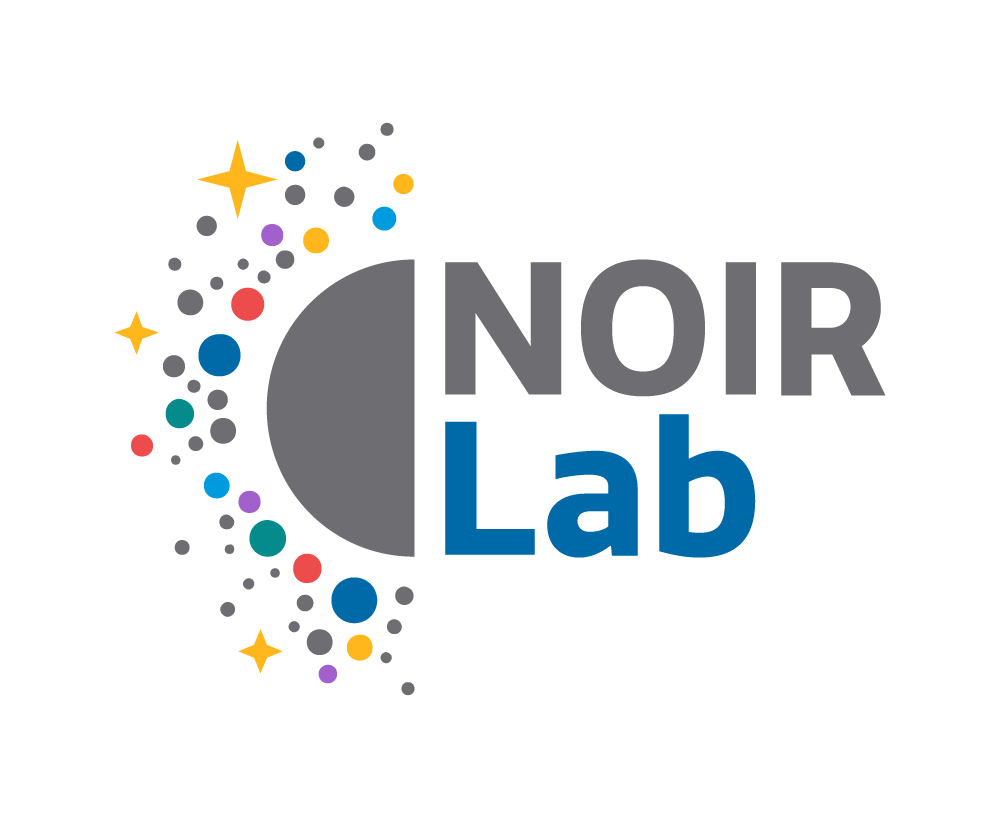Viaje al Universo 2024 lleva la astronomía a las aulas chilenas
El programa de este año llevó a los estudiantes de La Serena y Vicuña a una entretenida semana de educación científica
5 Noviembre 2024
Más de 1.300 estudiantes y 80 profesores participaron en las actividades de Viaje al Universo 2024, entre 21 y el 25 de octubre en La Serena y Vicuña, en Chile. “Viaje” es uno de los programas centrales de NOIRLab de NSF en Chile, y su objetivo apunta a llevar astrónomos, científicos, ingenieros y al personal de nuestros observatorios a las salas de clases.
Este año, el programa incluyó 41 actividades que se realizaron en 5 colegios de La Serena y Vicuña, por un equipo compuesto por 26 voluntarios. Todas las actividades de Viaje están alineadas con el currículum educacional de Chile para proporcionar una contribución tangible y acorde con la enseñanza de ciencia, física y astronomía en Chile.
Profesores y alumnos disfrutaron de una serie de actividades que incluyeron observaciones con telescopios solares, experiencias sobre el cuidado de los cielos oscuros, así como también diversos talleres para aprender sobre el Sistema Solar, el ciclo de vida de las estrellas, las galaxias, la Luna y mucho más. Todas las actividades fueron dirigidas por el personal de educación y vinculación junto con el apoyo del personal técnico de los telescopios que AURA/NOIRLab opera en Chile. Este año, el programa incluyó una actividad sobre el cuidado de los cielos oscuros, llamada ‘Astrobox,’ el que fue dirigida por el Grupo de Protección de los Cielos Oscuros en Chile.
Al igual que en años anteriores, NOIRLab invitó a algunos de sus aliados estratégicos en Chile para participar en Viaje. Un grupo de estudiantes de doctorado del Departamento de Astronomía de la Universidad de La Serena, participaron gentil y activamente en el programa, así como también una profesora del Departamento de Educación de la Municipalidad de La Serena Gabriel González Videla, quienes ofrecieron diversos talleres durante los días del evento. Ambos aliados, brindaron un apoyo valiosísimo que permitió que Viaje llegara a la mayor cantidad de estudiantes posible.
Al respecto, la profesora y Coordinadora del Colegio Intercultural Altovalsol, Lorena Cortés, indicó que “Las actividades de “Viaje al Universo” son la manera perfecta en la que mi comunidad Colegio Intercultural de Altovalsol, puede acercarse de una manera entretenida y totalmente motivadora a los conocimientos del cosmos. Los talleres invitan a descubrir y sorprenderse dejando en el estudiante un recuerdo difícil de borrar. Estamos totalmente agradecidos.”
Más Información
NOIRLab de NSF (Laboratorio Nacional de Investigación en Astronomía Óptica-Infrarroja de la Fundación Nacional de Ciencias de Estados Unidos), el centro de EE.UU. para la astronomía óptica-infrarroja terrestre, opera el Observatorio Internacional Gemini (una instalación de NSF, NRC–Canada, ANID–Chile, MCTIC–Brasil, MINCyT–Argentina y KASI – República de Corea), el Observatorio Nacional Kitt Peak (KPNO), el Observatorio Cerro Tololo (CTIO), el Centro de Datos para la Comunidad Científica (CSDC) y el Observatorio Vera C. Rubin (operado en cooperación con el National Accelerator Laboratory (SLAC) del Departamento de Energía de Estados Unidos (DOE). Está administrado por la Asociación de Universidades para la Investigación en Astronomía (AURA) en virtud de un acuerdo de cooperación con NSF y tiene su sede central en Tucson, Arizona. La comunidad astronómica tiene el honor de tener la oportunidad de realizar investigaciones astronómicas en I’oligam Du’ag (Kitt Peak) en Arizona, en Maunakea, en Hawai‘i, y en Cerro Tololo y Cerro Pachón en Chile. Reconocemos y apreciamos el importante rol cultural y la veneración que estos sitios tienen para la Nación Tohono O’odham, para la comunidad nativa de Hawai‘i y para las comunidades locales en Chile, respectivamente.
Enlaces
Contactos
Manuel Paredes
Outreach Manager Chile
NSF’s NOIRLab
T: +56 51205 671
Email: manuel.paredes@noirlab.edu
Josie Fenske
Jr. Public Information Officer
NSF NOIRLab
Email: josie.fenske@noirlab.edu







